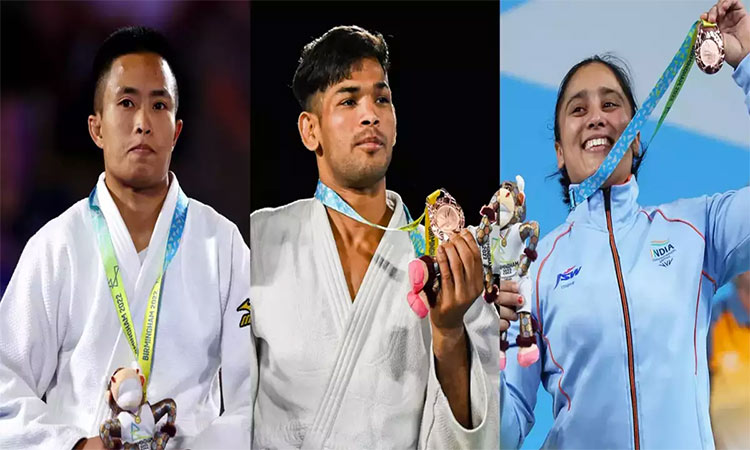India’s growing number of sport icons

India has won 66 medals at the Birmingham Commonwealth Games with 22 gold, 16 silver and 23 bronze medals.
India’s impressive 66 medal tally of 22 gold, 16 silver and 23 bronze at the Birmingham Commonwealth Games was a boost as the country celebrated its 75th year of independence. It seemed that India was becoming a sporting nation and not just a burgeoning economic power and an admirable democracy.
It has long been a travesty that India is a poor sporting nation, that its more than a billion people cannot produce a sports hero. And over the years, many arguments have been made that India is a poor nation and that a country where a large proportion of the population lives below the poverty line and is malnourished cannot be expected to produce champions. Then the quarrel turned into one of the sports venues and training.
But slowly the country is producing champions, and of course there has been a decrease in the number of people living below the poverty line, malnutrition has been reduced, and sports facilities have been improved. And having performed well in one or two sporting events, Indian athletes have performed well in all events from weightlifting to boxing to badminton and table tennis to hockey and cricket apart from track and field events.
Big cheers from athletes across the country. And it recognizes that both government and the private sector have created the sporting infrastructure to produce winners and that government is doing a lot more than the private sector, which is different in Europe and the United States.
There is also the interesting phenomenon that most of the boxers and weightlifters who made their mark in World Championships and in the Commonwealth and Asian Games were from rural and lower-middle class backgrounds. Athletic achievement helped them climb the social and economic ladder.
Small town, lower middle class, Nikhat Zareen, the new boxing champion, has become the country’s sporting icon overnight. Then there’s the case of badminton player PVSindhu, who has been a consistent medal contender, winning her gold at the Birmingham Common Wealth Games after winning silver and bronze in the previous two CWGs. The emergence of champions from these games has also expanded the gallery of heroes and heroines, role models for millions of Native Americans looking for model achievers.
Sporting achievements are also considered a sign of a strong nation. At the height of the old Cold War, the athletes of the United States and then Soviet Union were vying for medal-winning supremacy, and there was a close rivalry between the two at the Olympics.
Therefore, India’s sporting success is also considered a barometer of national power and achievement. This creates legitimate national pride and every sporting victory as a national achievement. Of course, national pride can sometimes go overboard when Brazilians get angry when their soccer team doesn’t win the World Cup. In India, except for cricket, fans remain polite spectators who cheer the winners and do not taunt the losers.
The government finds it very helpful to promote the sport champions as ambassadors for many purposes such as: And the more sports icons there are, the better. India’s sporting champions are growing in number, and they come from different parts of the country, both men and women, and from different walks of life.
It has its side effect of new champions spawning from older icons’ fan flowers. So India’s impressive medal record at the Birmingham Commonwealth Games has wider implications for national life.